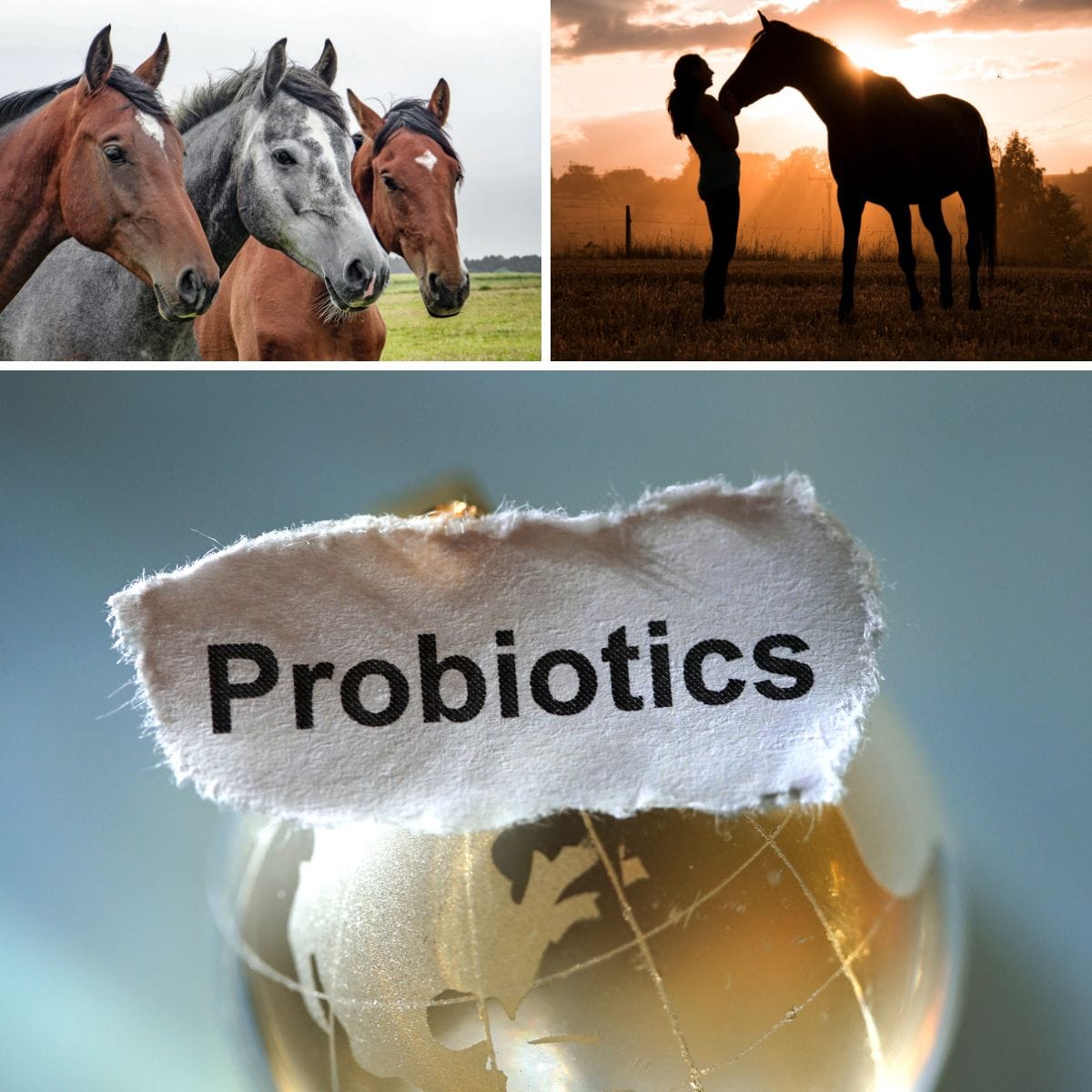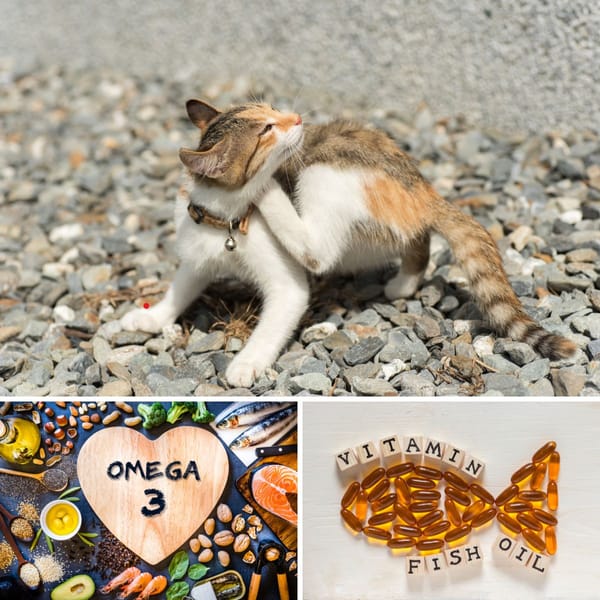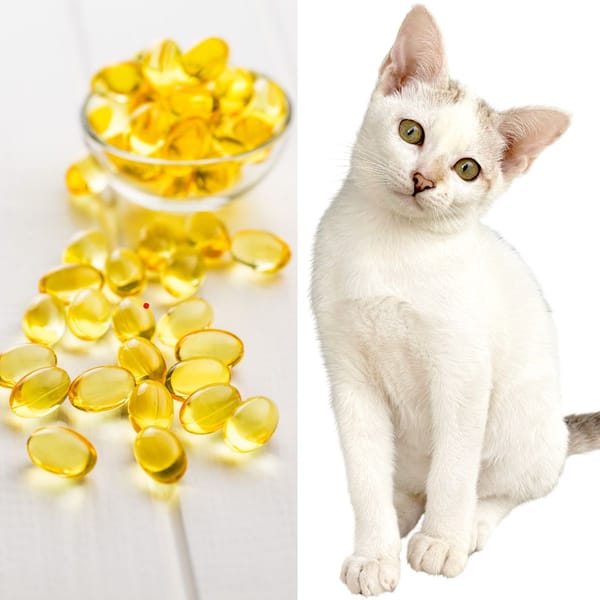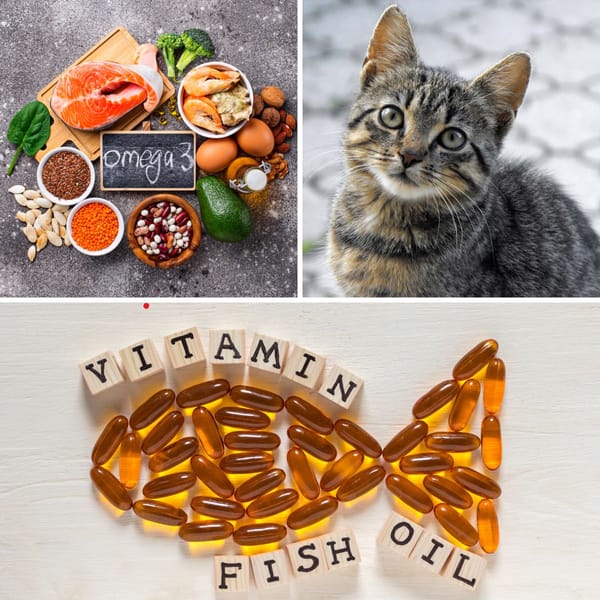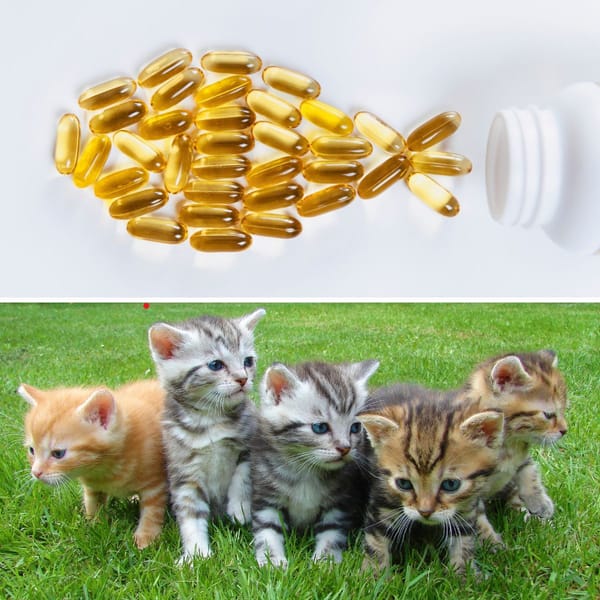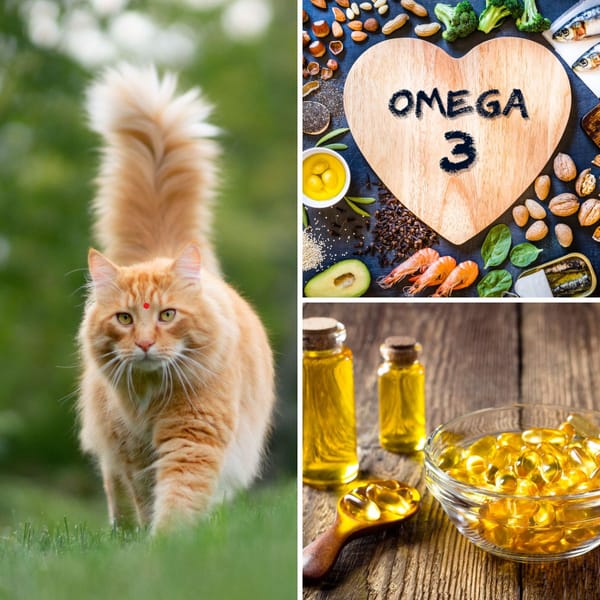Key Takeaways:
- Natural probiotics for horses are essential for maintaining a balanced gut microbiome, which is crucial for their overall health.
- Beneficial bacteria such as Lactobacillus and Bifidobacterium species are key components of equine probiotics that support digestive and immune health.
- Probiotic supplementation can be particularly beneficial after antibiotic treatment or during periods of stress to help maintain a healthy gut environment.
Probiotics have become a buzzword in the realm of health for humans and animals alike, and for good reason. When it comes to equine care, understanding what is a natural probiotic for horses is pivotal for maintaining their well-being. These beneficial microorganisms play a significant role in the horse's digestive tract, contributing to a balanced gut microbiome that supports digestion, immune function, and overall health.
The Equine Digestive System: A Complex Ecosystem
The digestive system of a horse is a complex and delicate ecosystem that relies on a balance of beneficial bacteria to function properly. These bacteria, primarily lactic acid-producing bacteria such as Lactobacillus acidophilus, are naturally present in the horse's gut and are crucial for breaking down food, producing vitamins, and protecting against pathogenic microbes.
Beneficial Bacteria: The Heroes of the Gut
Beneficial bacteria are the cornerstone of a horse's gut health. They not only aid in digestion but also contribute to a healthy mucosal barrier, which is essential for preventing the entry of harmful bacteria. Lactobacillus casei and Lactobacillus plantarum are examples of these heroes that help maintain an acidic environment in the gut, deterring the growth of bad bacteria.
Probiotics for Horses: Aiding Digestive Health
Probiotics for horses are supplements that contain live, beneficial microorganisms intended to support healthy digestive function. These can include lactic acid bacteria, active dry yeast, and other direct-fed microbials. They are designed to add to the population of good bacteria in the horse's gut, especially after disruptions like antibiotic treatment.
Gastric and Hindgut Health: A Delicate Balance
The horse's digestive tract is divided into the foregut, which includes the stomach and small intestine, and the hindgut, which includes the cecum and large intestine. Probiotic supplementation can help maintain the health of both areas, ensuring proper pH levels and gut motility, which are essential for preventing issues like gastric ulcers and colic.
Immune Health: Beyond Digestion
The benefits of probiotics extend beyond the digestive system. A healthy gut microbiome is closely linked to the horse's immune system. By supporting a balanced bacterial population, probiotics can enhance the immune response, helping the horse to fend off illnesses more effectively.
The Role of Prebiotics: Supporting the Good Bacteria
Prebiotics are non-digestible fibers that serve as food for the beneficial bacteria in the horse's gut. They help to stimulate the growth of good bacteria, thus supporting the effects of probiotics. Together, prebiotics and probiotics work synergistically to promote optimum digestive health.
Antibiotic Treatment: The Need for Probiotic Intervention
Antibiotics can disrupt the delicate balance of the equine intestinal microbiome by killing both probiotics and pathogenic bacteria. After antibiotic treatment, it's often recommended to supplement horses with probiotics to help re-establish a healthy gut microbiota and prevent digestive upset.
Probiotic Supplement: A Necessity or a Luxury?
When it comes to maintaining the health of your horse's digestive tract, a probiotic supplement can seem like a luxury. But let's face it, the horse's gut microbiota is a bustling metropolis of microorganisms that are crucial for their overall well-being. Introducing a high-quality probiotic supplement into your horse's diet is like sending in a team of experts to support digestive function and ensure that everything runs smoothly. It's not just about luxury; it's about providing your equine friend with the resources they need to thrive.
Now, you might be wondering if all probiotic supplements are created equal. The answer is a resounding no. The optimum probiotic will contain specific strains of bacteria known to benefit the horse's gut health. These beneficial bugs take up residence along the intestinal walls, helping to break down food and absorb nutrients. Plus, they're often available in powder form, making it super easy to mix into your horse's feed. It's a simple step that can make a big difference in their health.
Natural Probiotics and Performance: Enhancing Equine Athleticism
When we think about a horse's digestive tract, we often consider its role in general health and well-being. But did you know that the gut microbiota can also play a significant role in a horse's performance? A well-balanced microbiome can lead to better nutrient absorption, which translates into more energy and stamina for those intense training sessions and competitions. Just like human athletes, equine athletes require optimal nutrition, and probiotics can be a game-changer in achieving that.
Moreover, the horse's gut microbiota is not just about digestion. It's a complex system that interacts with the horse's immune system, affecting overall health and the ability to recover from stress and exertion. A healthy gut can mean a quicker recovery time and less downtime due to illness or digestive disturbances. This is particularly important for performance horses whose schedules are demanding. By supporting their gut health with natural probiotics, we're giving them the best chance to perform at their peak.
Understanding the Horse's Digestive Tract: A Primer
The horse's digestive tract is a marvel of nature, designed to process a mostly forage-based diet. Unlike humans, horses have a unique system that includes a relatively small stomach but a large cecum where fermentation of fiber occurs. This design means that horses graze and eat small amounts almost continuously. Horse owners must understand this because feeding practices that deviate from this natural grazing pattern can lead to digestive issues. Ensuring that horses have access to forage throughout the day mimics their natural feeding behavior and supports a healthy digestive tract.
In addition to feeding practices, the physical health of the horse's digestive tract is paramount. Issues like gastric ulcers can arise from stress, improper diet, or confinement. These ulcers not only cause discomfort but can also affect the overall absorption of nutrients. Recognizing the signs of digestive distress and providing a diet that includes plenty of roughage can help maintain the integrity of the horse's digestive tract, ensuring that they extract maximum nutrition from their feed.
The Influence of Forage on the Horse's Digestive Tract
When considering the horse's diet, forage plays a pivotal role in maintaining a healthy digestive tract. Horses evolved as grazing animals, and their digestive systems are designed to process large amounts of roughage. This natural inclination towards fibrous plant material stimulates regular gut movement and aids in the prevention of issues such as colic and ulcers. The type of forage, whether it's grass, hay, or a haylage mix, can influence the pH levels in the gut and the overall microbial balance, which is crucial for a healthy horse's microbiome.
Moreover, the quality of forage is just as important as the quantity. Poor quality forage may contain molds and toxins that can disrupt the delicate ecosystem within the horse's gut microbiota, leading to digestive upset. On the other hand, high-quality forage can provide a rich source of nutrients and act as a prebiotic, fostering the growth of beneficial bacteria. Therefore, horse owners should be mindful of the forage's origin, storage conditions, and nutritional content to support their horse's digestive health.
The Interplay Between Horse's Microbiome and Nutritional Absorption
The horse's microbiome is a complex network of microorganisms that reside in the gut and play a significant role in nutritional absorption. These microbes are responsible for
The Symbiotic Relationship: Horse's Gut Microbiota and Immune System
The horse's gut microbiota is a bustling metropolis of microorganisms that play a critical role in not only digestion but also in bolstering the horse's immune system. A diverse and balanced gut microbiota aids in the production of short-chain fatty acids, which are essential for gut health and have been shown to influence immune function. When the microbiota is in harmony, it acts as a formidable barrier against pathogens, reducing the likelihood of infections and promoting overall health.
However, this balance can be easily disrupted by factors such as antibiotics, stress, or sudden changes in the horse's diet. When the gut microbiota is thrown off-kilter, it can lead to a weakened immune response and make the horse more susceptible to illness. Proactive management of the horse's diet, including the strategic use of probiotics, can help maintain this delicate balance. By fostering a thriving gut microbiota, horse owners can support their equine companions' immune systems and contribute to their long-term health and well-being.
Stress and the Equine Gut: Managing the Unseen Effects
Horses, like humans, can experience stress, which can wreak havoc on their gut health. The horse's diet often changes with travel, competition, and training, which can lead to an imbalance in the horse's microbiome. Stress can slow down the digestive process, leading to an increased risk of ulcers and colic. By incorporating natural probiotics into a horse's diet, we can help mitigate these risks by ensuring a stable and healthy population of beneficial bacteria in the gut.
Furthermore, stress doesn't just affect the horse's digestive tract; it can also impact the horse's immune system. A compromised gut can lead to a weakened immune response, making the horse more susceptible to infections and diseases. By maintaining a healthy gut microbiota through the use of probiotics, we can help bolster the horse's immune system and provide a line of defense against the negative effects of stress. It's a simple step that can have profound effects on a horse's overall health and resilience.
Yeast Cultures: The Unsung Heroes in Equine Gut Health
Yeast cultures might not get as much limelight as their bacterial counterparts, but they're just as important for your horse's immune system and gut health. These robust little fungi work tirelessly within the hindgut, producing short-chain fatty acids that are vital for proper digestion and maintaining the integrity of the gut wall. They're like the construction workers of the horse's microbiome, building and repairing to keep everything in top shape.
But it's not just about the physical structure. Yeast extract in a horse's diet can also help stabilize the environment in the gut, making it less hospitable for harmful bacteria to take hold. This is especially beneficial for a senior horse, whose digestive system might not be as resilient as it once was. Loose manure can be a sign of an imbalance, and yeast cultures are often the unsung heroes that help to firm things up. By including these in your horse's probiotic supplement, you're giving them a full spectrum of microbial support.
Loose Stools and Digestive Upset: Probiotics to the Rescue
Horses experiencing loose stools or other signs of digestive upset may benefit from probiotic supplementation. By introducing beneficial microorganisms like Lactobacillus fermentum, these supplements can help stabilize the digestive system and support digestion.
Supplementing Horses: Choosing the Right Probiotic
When supplementing horses with probiotics, it's important to choose a product that contains a high number of colony forming units (CFUs) and is tailored to the needs of equine gut health. Products should contain strains of bacteria that are specifically beneficial for horses, such as Lactobacillus acidophilus and Lactobacillus rhamnosus.
Digestive Enzymes: Partners in Digestive Health
In addition to probiotics, digestive enzymes can be supplemented to aid in breaking down food components, further supporting the horse's digestive function. These enzymes work in tandem with probiotics to ensure efficient nutrient absorption and energy metabolism.
The Impact of Diet on the Horse's Microbiome
A horse's diet plays a significant role in shaping its gut microbiome. Diets rich in fiber, such as those containing hay and pasture, can promote the growth of beneficial bacteria and support a healthy gut environment. Conversely, diets high in starch and sugar can disrupt the microbiome and lead to digestive issues.
Senior Horses: Special Considerations for Gut Health
Senior horses may have difficulty maintaining weight and are more susceptible to digestive problems. Probiotic supplementation can be particularly beneficial for these older equines, helping to maintain a healthy gut microbiome and support their overall health.
Case Study: The Power of Probiotics in Action
A study conducted on a group of adult horses with a history of colic demonstrated the efficacy of probiotic supplementation. After adding a probiotic blend to their diet, the horses showed improved feed efficiency, better manure consistency, and a reduction in colic episodes, highlighting the positive impact of probiotics on equine health.
The Future of Equine Probiotics: Innovations and Research
Ongoing research continues to uncover new strains of probiotic bacteria and novel ways to support the horse's gut microbiome. Innovations in equine nutrition are paving the way for more targeted and effective probiotic supplements that cater to the specific needs of horses.
Summary
Understanding what is a natural probiotic for horses is essential for anyone involved in equine care. These beneficial microorganisms play a crucial role in maintaining a balanced gut microbiome, which is vital for digestive health, immune function, and overall well-being. Whether it's to aid recovery after antibiotic treatment, support digestion, or enhance immune health, probiotic supplementation can be a valuable addition to a horse's diet. By choosing the right probiotic and considering the unique needs of each horse, owners and caretakers can help ensure their equine companions lead healthy, happy lives.
FAQ Section
Q: Can probiotics for horses help with weight management? A: Yes, probiotics can help improve nutrient absorption and feed efficiency, which can be beneficial for horses that have difficulty maintaining weight.
Q: How soon after antibiotic treatment should I start giving my horse probiotics? A: It's often recommended to start probiotic supplementation immediately after antibiotic treatment to help re-establish a healthy gut microbiota and prevent digestive upset.
Q: Are there any side effects of giving horses probiotics? A: Probiotics are generally considered safe for horses. However, it's important to choose a high-quality product and follow the recommended dosage to avoid any potential digestive discomfort. Always consult with a veterinarian before starting any new supplement regimen.

